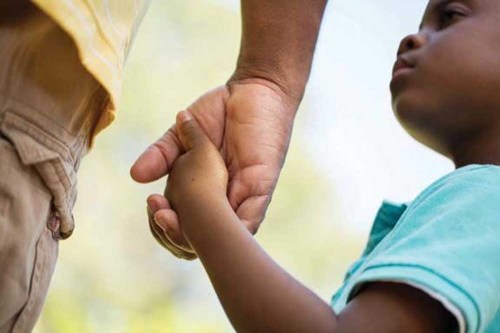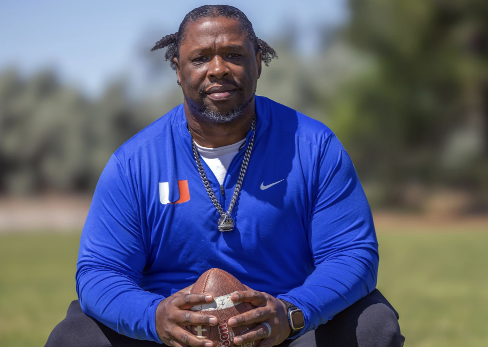Having those conversations about discrimination
Published 12:00 am Saturday, August 1, 2020

- African American father and son
As adults, it is our job to help children learn to be awesome adults. Part of this is to have the hard conversations that make us unsure and uncomfortable, on topics like discrimination. So here are some things to keep in mind as starting points when approaching those tough talks.
Discrimination can be a hard topic because it can make us feel vulnerable. It puts us in a place where we might have to admit our own shortcomings or recall events that didn’t feel safe. It’s also hard because it’s something we don’t always see or understand, especially if we are part of the majority. And to put the cards on the table, I am white and I have benefited from being white. I am also a female and have experienced discrimination because of my gender.
This isn’t a talk you have once and you’re done. Talking about discrimination, either racial, gender, religious, economic or any other kind, should happen across years, in moments when it comes up naturally and where you have their attention. It could be when your child saw discrimination or when she had an opportunity stand up against it … and those moments can be defining. This is a conversation that starts when they are infants and continues throughout their lifetime. The more you have the hard conversations, the easier it gets, so push through it.
Starting at birth might sound too early, but it really isn’t. Children start to see racial and gender difference at a very young age, and as they grow they start to group people into categories of “us” and “them.” This leads to seeing their group as better than the other group, regardless of the facts. It’s our role as adults to talk about the value of diversity and that different doesn’t mean less than. We need to specifically call out differences like race and gender to draw attention to the beauty and equality of them. If we gloss over them, we enable further discrimination and miss out on what makes each of us unique.
This brings us to another important part of the conversation, learning from our mistakes. Bias can be intentional or unintentional. Although we may not have meant to be hurtful, our actions could have been just that. What is important is that we acknowledge and make amends. Modeling this is essential for your children to see. Watching how you handle mistakes that hurt others helps them learn how to handle their own mistakes. A key step is to practice empathy, to see from someone else’s perspective how your actions might be damaging. Using children’s books is a great way to talk about how discrimination and insensitive words can impact others. Practice is key. Help your child with what they can say after they’ve acted badly, giving them the words to make it easier to apologize.
Few people intentionally discriminate, but we all have hidden biases that affect how we treat others. We might pick these up from our parents, or peer groups, through education or media. As parents, we need to to identify these in ourselves and our culture, then purposefully teach our children to be aware of them. These biases can be seen in the way we stereotype groups and in jokes told. As you talk with children, explain how these biases are inaccurate and hurtful. When you see them in media, or after an event where an issue came up, pause and reflect on what just happened. Point how there are often greater differences inside a group than there are between groups. For example, there are fewer differences between boys and girls in math ability than when you look at boys alone. People aren’t all that different. When we look for common ground, it’s easier for us to teach our children to respect others.
So what was all that again? When you talk with your children (throughout their lifetime), use their own experiences or books they are familiar with. Adjust your language and examples to match your child’s age and understanding. Celebrate diversity! Belonging doesn’t mean being just like the next person, it means being yourself. What is more special than that? Acknowledge their feelings without dismissing or punishing them, and use this as a chance to show respect for how others feel. Check your own judgements and biases, and talk about how we all have value. Look for how we are more alike than how we are different!
Here are some online resources to help you with the hard conversations:
https://bit.ly/Racism_2to5
www.embracerace.org/resources/teaching-and-talking-to-kids
www.apa.org/topics/kids-discrimination
https://bit.ly/TalkHonestly
________
Erin Bartsch is the P-3 Coordinator for the Blue Mountain Early Learning Hub, which works to bridge early childhood resources and prepare children for kindergarten. For more information visit www.bluemountainearlylearninghub.org.









